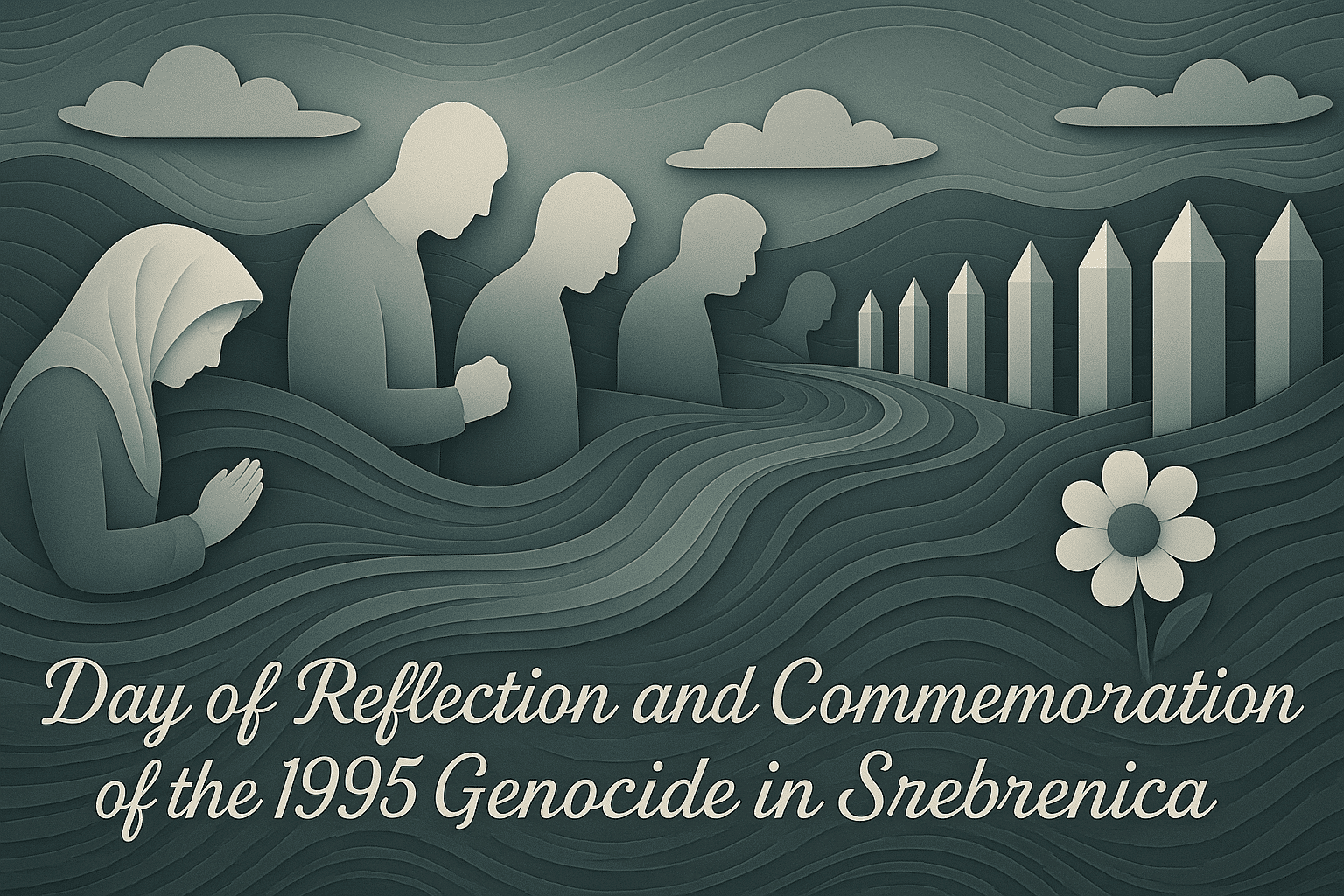What is the International Day of Reflection and Commemoration of the 1995 Genocide in Srebrenica?
The International Day of Reflection and Commemoration of the 1995 Genocide in Srebrenica is observed annually on July 11. It honours the memory of over 8,000 Bosniak men and boys who were systematically killed by Bosnian Serb forces in and around Srebrenica during the Bosnian War. The massacre, recognised as genocide by international courts, stands as the worst atrocity on European soil since World War II. The day serves as a solemn reminder of the consequences of hatred and the importance of preventing such crimes in the future.
This observance also aims to support survivors and families of the victims, acknowledging their enduring pain and resilience. It encourages the global community to confront and reject denial and revisionism related to the genocide. By reflecting on the events of Srebrenica, the day promotes a commitment to justice, reconciliation and the upholding of human rights worldwide.
History and Origin
On May 23, 2024, the United Nations General Assembly adopted Resolution 78/282, designating July 11 as the International Day of Reflection and Commemoration of the 1995 Genocide in Srebrenica. The resolution was supported by 84 member states, with 19 against and 68 abstentions. It was co-sponsored by countries including Germany and Rwanda, reflecting a collective commitment to remember the victims and prevent future genocides.
The date, July 11, marks the beginning of the massacre in 1995, when Bosnian Serb forces overran the UN-declared safe area of Srebrenica. The international community’s failure to prevent the genocide has been a subject of reflection and accountability. The establishment of this day underscores the importance of acknowledging past failures and reinforcing efforts to protect vulnerable populations.
Who participates in the International Day of Reflection and Commemoration of the 1995 Genocide in Srebrenica?
- Survivors and families of victims: honour their loved ones and share their stories
- Governments and international organisations: issue statements and participate in commemorative events
- Educational institutions: conduct lessons and discussions on the genocide and its implications
- Human rights groups: organise campaigns to raise awareness and combat denial
- General public: attend memorials and engage in acts of remembrance
Slogans and Themes
The day emphasises remembrance, justice and the prevention of future atrocities. Common themes include “Never Again,” “Remembering Srebrenica,” and “Justice for the Victims.” These messages aim to foster a culture of accountability and to ensure that the lessons of Srebrenica inform global efforts against genocide and mass atrocities.
Colours, Symbols and Patterns
Colours
- White: symbolises peace and mourning
- Green: represents hope and renewal
- Black: denotes sorrow and remembrance
Symbols
- Srebrenica flower: a white flower with eleven petals, representing the eleven days of the massacre and the innocence of the victims
- Gravestones: signify the loss and serve as a reminder of the lives taken
Patterns
- Memorial ribbons: worn to show solidarity and remembrance
- Commemorative art installations: created to honour the victims and educate the public
Most used hashtags
- #SrebrenicaGenocide
- #NeverForgetSrebrenica
- #SrebrenicaMemorial
- #JusticeForSrebrenica
- #July11Remembrance
How do you observe the International Day of Reflection and Commemoration of the 1995 Genocide in Srebrenica?
- Attend memorial services: participate in events held at memorial centres and public spaces
- Educate oneself and others: learn about the genocide through documentaries, books and survivor testimonies
- Support organisations: contribute to groups working on genocide prevention and survivor support
- Engage in discussions: promote conversations about the importance of remembrance and justice
- Share on social media: use platforms to spread awareness and honour the victims
Why is the International Day of Reflection and Commemoration of the 1995 Genocide in Srebrenica important?
This day is vital in acknowledging and honouring the victims of the Srebrenica genocide. It serves as a reminder of the atrocities that can occur when hatred and intolerance go unchecked. By commemorating this tragedy, the international community reinforces its commitment to preventing future genocides and upholding human rights.
The observance also plays a crucial role in combating denial and revisionism. It ensures that the truth about the events in Srebrenica is preserved and that the memories of the victims are honoured. Through education and remembrance, the day fosters a global culture of accountability and peace.
Features
July 11: Day of Reflection and Commemoration of the 1995 Genocide in Srebrenica
Why do you keep falling for the same type?
Read the article Lovemaps: the hidden blueprint of our love.
Did you not find what you were looking for? Let me help you find more.

